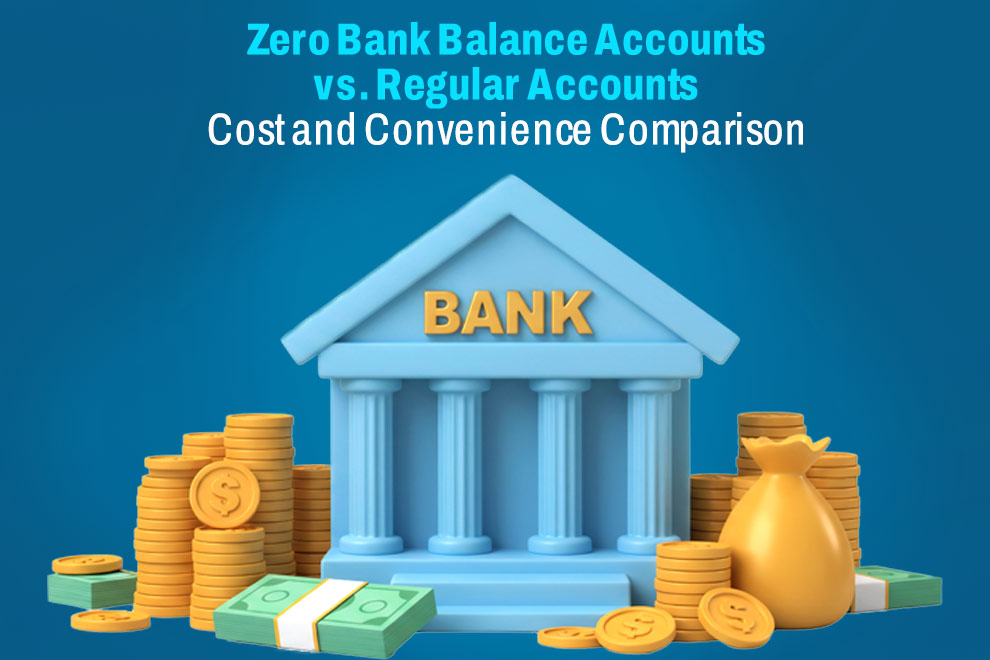Choosing the right Savings Account can make a big difference in how you manage your money and your overall banking experience. Nowadays, people often have to decide whether a regular Savings Account or a zero bank balance account is best suited to their needs.
Both types of accounts serve different financial needs and come with their own advantages. Understanding the key differences between them can help you choose the right account.
Difference Between Zero Bank Balance Accounts and Regular Savings Accounts
| Features | Zero Balance Account | Regular Savings Account |
| Minimum Balance | No minimum balance needed | Minimum balance needed to avoid penalties |
| Transaction Limits | May have limits on free cash withdrawals, chequebook requests, etc. | Generally offers higher transaction limits and more features |
| Services | Offers basic banking services and digital access | Offers additional services such as insurance, higher interest rates, etc. |
| Best Suited For | Students or individuals with fluctuating income | Individuals who can maintain a higher balance. |
Minimum Balance Requirements
Regular Savings Accounts require you to keep a minimum balance in your account at all times, depending on your bank and the account type. If your balance goes below this, the bank charges penalty fees.
A zero bank balance account removes the minimum balance requirement completely, so you never have to worry about maintaining a specific amount in your account.
Initial Deposit
The main difference lies in the initial deposit amount. Regular Savings Accounts require a higher initial deposit to open your account, while a zero-balance account can be opened with a much smaller amount.
However, it must be noted that both types of accounts support account opening online through digital banking apps, making the process quick and convenient for everyone.
Transaction Limits and Banking Flexibility
Regular Savings Accounts usually let you make multiple transactions in different ways, like ATM withdrawals, online transfers, etc. However, there might be some limits depending on the type of account chosen.
Zero-balance accounts might have monthly limits on free transactions, and once you cross that limit, the bank charges small fees. There are also zero-balance accounts that restrict the amount of cash that can be deposited within a certain time frame.
Additional Features and Premium Services
Regular accounts often come with extra services, including locker facilities, higher insurance coverage, and access to a relationship manager.
Zero-balance accounts focus more on basic digital banking features, and while some banks offer useful tools and basic insurance, these accounts are made to keep things simple and easy, rather than offering premium benefits.
Best Suited For
Zero-balance accounts are well-suited for students, young professionals, and freelancers with limited funds and irregular monthly incomes. Regular savings accounts are better for salaried people and business owners who can maintain a minimum balance and want premium services.
Overall Benefits
Zero-balance accounts remove penalty charges and make banking easy for everyone. Regular accounts offer better interest rates, premium services like lockers, relationship manager support and unlimited transactions. They are best suited for individuals who require comprehensive banking features and make multiple transactions each month.
Conclusion
The choice between a zero bank balance account and a regular account depends on your financial situation and your banking needs. If you want flexibility and don’t want to worry about maintaining a minimum balance while handling basic banking online, a zero-balance account opening online process is a good choice.
However, if you can maintain a minimum balance and want full banking features, then a regular account would work better.
Also Read: US CMA Classes in Mumbai to Master Management Accounting










